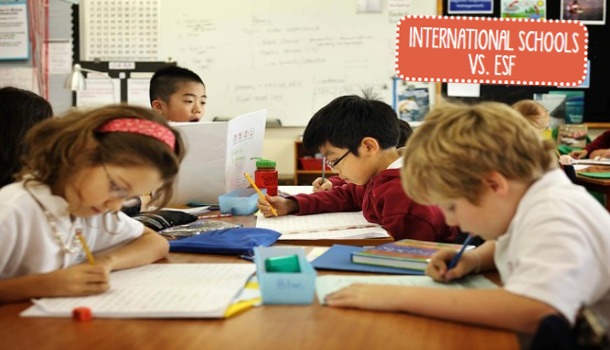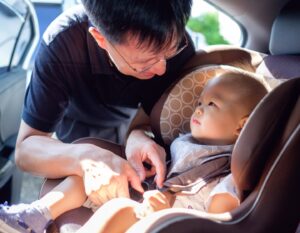

In Hong Kong we have a variety of international schools offering a variety of curricula. Working out which school is the best for your children can take a lot of research. Alongside international schools, many people also consider the English Schools Foundation (ESF) schools as an option. Here Gill Keefe discusses the main differences between these systems.
According to the government there are approximately 48 international schools in Hong Kong. These follow a non-Hong Kong curriculum, for example UK, US, Canadian, French, German, International Baccalaureate, or a combination of these. Some give a priority to a particular nationality or to a child coming from a similar system. Some of these international schools are academically selective whilst others may specifically look for ethnic diversity. Whatever their entrance conditions, all schools want to fill their places with appropriate students that fit their criteria.
Most of these schools require a prospective student to pass an entrance assessment. This often takes the form of an English and Maths paper, and possibly an interview for the older students while for the younger ones it may be more practical or play-based, with teachers observing a child’s interaction with their peers, as well as some one-on-one contact with the teacher. Parents of younger children often become stressed, worrying about what the school is looking for. Even the most academic of the international schools are not necessarily looking for “little Einsteins”, but more for bright, communicative children who liaise well with their peers, share toys, and relate to the teacher comfortably.
Other things that some schools may be looking for in a student include:
– A strong commitment to extra-curricular sports, music or drama.
– A religious commitment, or strong empathy towards a religion.
– A commitment to a type of culture.
If a school gives a priority to a nationality, or to a previously studied national curriculum, then clearly there are going to be a possible majority of that particular nationality in that school. Location of the school can also have an impact on the student population.
All these aspects can have an impact on how “international” the international school may be.
ESF schools, on the other hand, are not academically selective and do not give priority to any nationality. They are looking for children who use English as their usual means of communication, and who are able to engage with an English-medium curriculum. Their new admission policy also states that parents must show that they will support students to achieve success within the context of the programmes offered. It is worth noting that a percentage of places are reserved for students with special educational needs. Previously ESF gave priority to children who were new to Hong Kong, who were not already attending a school here, and who did not speak Cantonese so could not access the local system. That has all changed, and interview priorities are broadly given to the following categories:
- Children of full-time ESF staff
- Siblings
- Nomination Rights holders
- Returning students and children of former students (with some additional conditions).
At interview, the child’s English and social skills will be assessed together with their ability to cooperate with adults and other children. ESF will also require a parent statement and parent interview.
The differences then are that most international schools are looking for children with certain criteria. Meanwhile ESF bases its criteria on meeting their English requirements, social skills and capacity for learning through an English-medium curriculum, along with the support of parents.
What is the right option for your child and your family?
When considering international schools and ESF, it is important to look at the child and the family background; any learning needs and the support they may need; long-term plans; languages; previous curricula studied, and where they think they may live next if they are not planning on staying in Hong Kong. School fees, the cost of debentures and levies are important. And it is also important to consider the culture and expectations of the school. I would advise calling the school to find out when a tour or visit is possible and then the differences among these schools will become clearer.
Many international schools have the word “international” in the title, but how international are they really? Some schools say they have 20, 30 or 40 different nationalities, but with all the entrance criteria and different locations some international schools are not so diverse. Whilst ESF does not have “international” in its title, I would suggest that ESF schools with its 13,000 students and 50 nationalities are quite possibly some of the most international of all Hong Kong’s schools.
At Jones Lang LaSalle we offer expert schooling assistance as part of our home search service, looking after the family as a whole.
 View All
View All











 View All
View All





 View All
View All


 View All
View All













